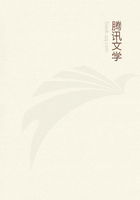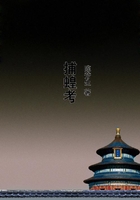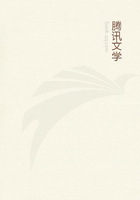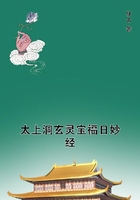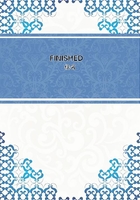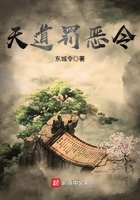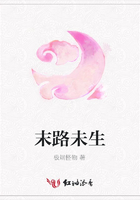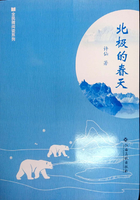In any case, neither of these poems can be looked upon as preparations, on Chaucer's part, for the longer work on which he was to expend so much labour; but in a sense this description would apply to the translation which, probably before he wrote "Troilus and Cressid," certainly before he wrote the Prologue to the "Legend of Good Women," he made of the famous Latin work of Boethius, "the just man in prison," on the "Consolation of Philosophy." This book was, and very justly so, one of the favourite manuals of the Middle Ages, and a treasure-house of religious wisdom to centuries of English writers. "Boice of Consolacioun" is cited in the "Romaunt of the Rose"; and the list of passages imitated by Chaucer from the martyr of Catholic orthodoxy and Roman freedom of speech is exceedingly long. Among them are the ever-recurring diatribe against the fickleness of fortune, and (through the medium of Dante) the reflection on the distinction between gentle birth and a gentle life. Chaucer's translation was not made at second-hand; if not always easy it is conscientious, and interpolated with numerous glosses and explanations thought necessary by the translator. The metre of "The Former Life" he at one time or another turned into verse of his own.
Perhaps the most interesting of the quotations made in Chaucer's poems from Boethus occurs in his "Troilus and Cressid," one of the many medieval versions of an episode engrafted by the lively fancy of an Anglo-Norman trouvere upon the deathless, and in its literary variations incomparably luxuriant, growth of the story of Troy. On Benoit de Sainte-Maure's poem Guido de Colonna founded his Latin-prose romance; and this again, after being reproduced in languages and by writers almost innumerable, served Boccaccio as the foundation of his poem "Filostrato"--i.e. the victim of love. All these works, together with Chaucer's "Troilus and Cressid,"with Lydgate's "Troy-Book," with Henryson's "Testament of Cressid" (and in a sense even with Shakespere's drama on the theme of Chaucer's poem), may be said to belong to the second cycle of modern versions of the tale of Troy divine. Already their earlier predecessors had gone far astray from Homer, of whom they only know by hearsay, relying for their facts on late Latin epitomes, which freely mutilated and perverted the Homeric narrative in favour of the Trojans--the supposed ancestors of half the nations of Europe. Accordingly, Chaucer, in a well-known passage in his "House of Fame," regrets, with sublime coolness, how "one said that Homer" wrote "lies,"Feigning in his poetries And was to Greekes favourable.
Therefore held he it but fable.
But the courtly poets of the romantic age of literature went a step further, and added a mediaeval colouring all their own. One converts the Sibyl into a nun, and makes her admonish Aeneas to tell his beads.
Another--it is Chaucer's successor Lydgate--introduces Priam's sons exercising their bodies in tournaments and their minds in the glorious play of chess, and causes the memory of Hector to be consecrated by the foundation of a chantry of priests who are to pray for the repose of his soul. A third finally condemns the erring Cressid to be stricken with leprosy, and to wander about with cup and clapper, like the unhappy lepers in the great cities of the Middle Ages. Everything, in short, is transfused by the spirit of the adapters' own times; and so far are these writers from any weakly sense of anachronism in describing Troy as if it were a moated and turreted city of the later Middle Ages, that they are only careful now and then to protest their own truthfulness when anything in their narrative seems UNLIKE the days in which they write.
But Chaucer, though his poem is, to start with, only an English reproduction of an Italian version of a Latin translation of a French poem, and though in most respects it shares the characteristic features of the body of poetic fiction to which it belongs, is far from being a mere translator. Apart from several remarkable reminiscences introduced by Chaucer from Dante, as well as from the irrepressible "Romaunt of the Rose," he has changed his original in points which are not mere matters of detail or questions of convenience. In accordance with the essentially dramatic bent of his own genius, some of these changes have reference to the aspect of the characters and the conduct of the plot, as well as to the whole spirit of the conception of the poem. Cressid (who, by the way, is a widow at the outset--whether she had children or not, Chaucer nowhere found stated, and therefore leaves undecided) may at first sight strike the reader as a less consistent character in Chaucer than in Boccaccio.
But there is true art in the way in which, in the English poem, our sympathy is first aroused for the heroine, whom, in the end, we cannot but condemn. In Boccaccio, Cressid is fair and false--one of those fickle creatures with whom Italian literature, and Boccaccio in particular, so largely deal, and whose presentment merely repeats to us the old cynical half-truth as to woman's weakness. The English poet, though he does not pretend that his heroine was "religious" (i.e. a nun to whom earthly love is a sin), endears her to us from the first; so much that "O the pity of it" seems the hardest verdict we can ultimately pass upon her conduct.

